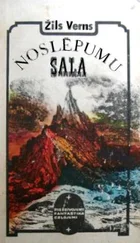“Now, we still need information about the net nexuses.”
Spanner might be the soul of impatience when it came to other people, but when she was planning something dangerous and illegal she could wait like a cat by a mousehole. I sighed. “All right. We could both name the locations of half a dozen stations without even thinking hard. And you’re good with locks. So tell me why we can’t just break in and use one of those.”
She almost rubbed her hands. She loved displaying her skills. “Because everyone, no matter how security-conscious—in fact, especially those who are security types—adopts patterns of behavior. The systems that check for intrusion or piggybacking will have initially been generated randomly. But those results are subject to human oversight. And people always form habits. Patterns. If we can find someone to tell us the patterns, we find a hole.”
Lore is twelve. It is one of those rare days when both Oster and Katerine are busy at the terminals and she is free to do what she wants. It is July, and hotter than usual on Ratnapida; the constant hum of the air-conditioning drives her outside, to the carp pools. Tok is already there, lying on his stomach, dipping a blade of grass in and out of the water. His sketch pad blinks, forgotten, in the grass.
He looks up. “If you do this with the sun facing you, sometimes the fish think it’s an insect or something, and try to grab the grass.” Lore plops down next to him and watches while he dips the grass in and out, in and out.
“I can’t see any fish.”
“They’re there. You probably scared them away.” He throws the grass away. A breeze catches it and drops it in the center of the pool. They watch it turn slowly on the water. “So,” Tok says finally, “Mum and Dad giving you some peace for a change?”
Lore nods. They watch the grass blade some more. It drifts into the tiny eddy near a stone.
“Hang in there,” Tok says softly. “It’ll get better.”
Lore sighs, lies full length on the turf. “How do you cope?”
“It’s not as hard for me. They leave Stel and me alone; maybe they see us as belonging to each other somehow.” He shrugs, then smiles wryly. They both know Stella belongs to no one. No one has seen her for two months; they get occasional net calls from Macau and Aspen, from Jaffna and Rio. “And I’ve got my art. I can say, ‘This is what I want to do with my spare time, until I join the company.’ They tend to leave me alone.”
“I don’t have anything.”
“Find something.”
Lore nods.
“So, what has Dad all hot under the collar?” Tok asks.
“Some emergency about patent law in the Polynesians,” she says. “He thinks the government might disallow our proprietary rights on the Z. mobilis pyruvate decarboxylate gene.”
“Dad’s pet ethanol project.” Lore nods again. She can no longer see the grass blade. It must have sunk. “Oh well, if Dad gets nowhere with the law, Mum’ll send in the dirty-tricks department.”
Lore sits up. “The what?”
Tok grins. “Didn’t think you knew about that. The dirty-tricks department are the ones who do all the dirty jobs. Illegal ones. Off the record.”
“You’re making this up.”
“Nope. Read about it for yourself. It’s in Aunt Nadia’s personal file—”
“How did you get into that!”
“I’ll show you if you like. Anyway—”
“What does it say?”
“I’m getting to that. It talks about a bunch of boring stuff, accounts, company coups, that sort of thing, but it also talks about ‘Jerome’s Boys.’ Remember Jerome Gladby?”
“The old man?” The last time Lore saw her grandmother’s crony, an ex-COO, he was in a wheelchair, his booming voice reduced to a thin creak.
“He wasn’t always old. Years ago he used to run a group of people who did nothing but fix things that couldn’t be fixed by any other means. They carried guns, false ID, everything.”
“You’re kidding!”
“From what Nadia’s journal says it sounds like they did anything necessary: spread disinformation, stole things, sabotaged rivals’ plants. It was just getting interesting when Greta came on the net and kicked me out of the files.”
“Greta?” Lore is astounded. “I thought she was in Hangzhou or somewhere.”
“Zhejiang. She was just on the net, I guess. Anyway, she cut me out of those files clean as a whistle. Said little brothers who meddled in people’s private business came to regret it. Then she was gone. And when I tried to get back in, the files were deleted. Or she’d hidden them somewhere.”
Lore shakes her head. There is no point trying to figure out Greta’s motives; she has always been unfathomable. Instead, Lore tries to imagine what it would be like to have Jerome Gladby’s clandestine power. “Do you think that old man used to run around like a commando, pockets stuffed with knives and earwigging bugs?”
They laugh. “I bet all he did was sit in a secret room somewhere and issue coded orders over the net.”
“Hey, maybe they took pictures of rival CEOs beating their dogs and blackmailed them?”
“Or planted government information in their bags and had them arrested by the police…”
“Or faked up footage of them doing things with children…”
They amuse themselves for nearly an hour with imaginary exploits that grow more outrageous. They laugh until Lore’s stomach hurts.
She is still grinning when Oster finally emerges from his net conference and they go for a walk together along the beach. He rubs his eyes every now and again, and sighs,
“Everything go all right”
“Mostly. But they’ve got some new hard-line government in power who want to throw away all international protocol and claim all foreign assets as their own, especially intellectual property.”
“But you fixed it?”
“I think so. We’ve formed a loose coalition with other corporations—especially publishers and the entertainment business, who get all their money from copyright—and we hope that the threat of massive sanctions will cool the new government’s ardor.”
The sun is almost setting. Lore picks up a piece of driftwood and throws it as far into the reddening sea as she can. “But if that doesn’t work you could always send in a couple of assassins, right?” she asks as they resume walking.
“Now there’s a nice thought. It would solve a lot of problems.”
Lore wipes sandy hands down her shorts. “Then why don’t you? I don’t mean actually kill people, but, you know, make sure that things don’t go quite right with, oh, I don’t know, the national power system or something.”
Oster laughs as they walk, and Lore laughs along with him at first, but then she gets more serious.
“Is it true? I mean, could you do that if you wanted?”
He stops, looks at her closely. “Where on earth did you get that idea?”
“Tok was telling me about Jerome’s old group.”
Oster looks nonplussed. “But that group was shut down years ago, in my mother’s day.”
“So it did exist?”
“Yes. But it doesn’t anymore, at least not in that form, anyhow. Now it’s a legitimate troubleshooting team.”
They walk on some more. A cormorant dives into a wave. “So why was it shut down in the first place?”
“It got out of hand.”
Lore, imagination running riot, pictures grim men and women with drawn guns. “I don’t suppose they liked that. Did they shoot anyone?”
Oster bursts out laughing. “Sometimes I forget you’re only twelve.” He ruffles her hair. She smoothes it back patiently. “Look, let’s sit down a minute.” They find an old, half-buried log and sit facing the sea. “The lubricant behind all corporate machinery is money. My mother didn’t have to use threats. She didn’t have to fire anyone. All she did was reduce the funding for the group and tighten their accounting methods. Illegal operations are very expensive: materiel is purchased on the black market, bribes have to be made in the right places, cleanup operations are time-consuming and delicate. They simply can’t work without lots of liquid cash. No funds, no operation. So those who missed the glamour days went away and found some other kind of work, and those who are left have the souls of accountants. All that double-dealing stuff is history.”
Читать дальше












